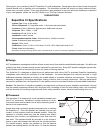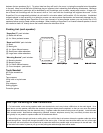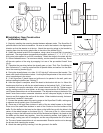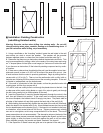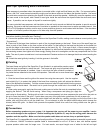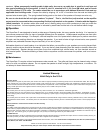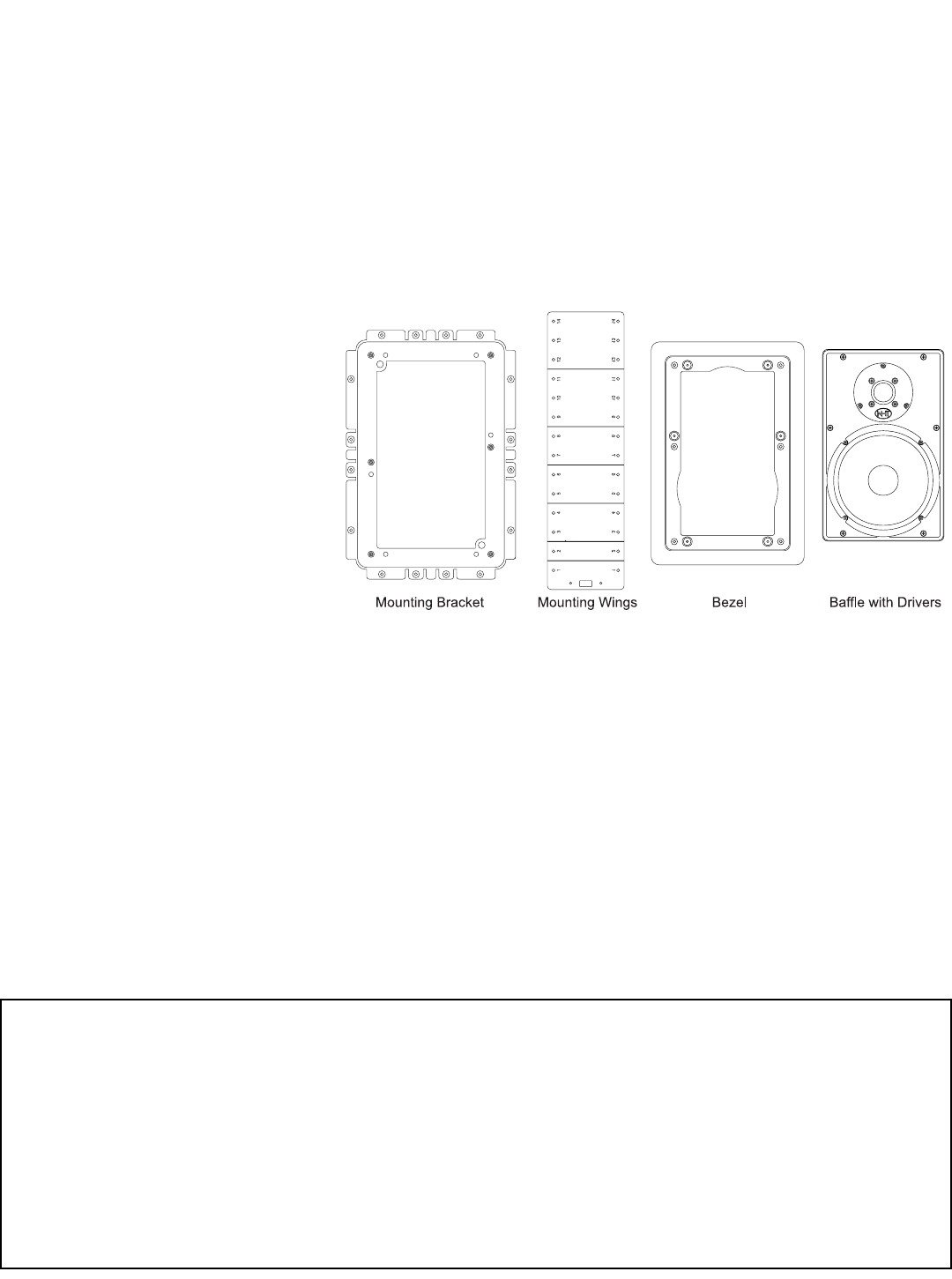
between the two speakers (fig.1). To get an idea how they will look in the room, try taping the supplied cutout templates
to the wall. Keep in mind that room furnishings play an important role in absorbing and reflecting soundwaves. Midrange
and high frequencies in particular will be absorbed by soft furnishings such as sofas, carpets and curtains. A large num-
ber of these soft furnishings will dull the sound, while a “live” room with few furnishings will brighten the sound. As the
SuperOne Ci is not magnetically shielded, do not install it in a location where it will be within 18” of a television. Unshielded
magnets placed in close proximity to a television screen can cause picture discoloration and eventually damage the pic-
ture tube. When installing three SuperOne Ci’s for front channels in a home theater system, you can position the L & R
speakers farther apart to create a wider soundstage. When installing a SuperOne Ci as a center channel speaker, it should
be installed at least 18” directly above the location where the television will be.
Packing List (each speaker):
“SuperOne Ci” pack includes:
(1) Baffle with drivers
(6) 4 x 16mm panhead screws
“Bezel and Grille” pack includes:
(1) Bezel
(1) Metal grille
(6) 4 x 16mm flathead screws
(6) Small foam rubber absorbers
(6) Large foam rubber absorbers
“Mounting Bracket” pack includes:
(1) Mounting bracket
(2) Mounting wings
(4) 5 x 50mm flathead screws
(1) Cutout template - paint shield
Tools Needed:
#2 Philips screwdriver
Pencil
Tape measure
Utility knife or keyhole saw
Level
Wire strippers
Safety goggles
Protective gloves
Tech Tips: Pre-Wiring for New Construction
1. For best results, avoid running speaker cable near electrical wire, as it may induce a 60Hz hum in the audio signal. It’s a
good idea to run the speaker cable after the electrical wiring has already been completed, so that you can route the speaker
cable at least three feet away from the electrical wiring. If speaker cable and electrical wiring must run parallel, install the cable
within a metal conduit. Note that low-voltage wiring (doorbell, intercom, telephone, security, etc.) are unlikely to induce hum and
can typically be run parallel to speaker cable with no detrimental effects.
2. When drilling holes through wall studs or ceiling joists, use a drill bit that is at least as wide as the speaker cable that will be
routed through them. Always drill through the center of the stud or joist. If the hole must be drilled within one inch of the edge
of a wall stud, add a nail plate to the drywall side to protect the cable from possible nails and screws put in the wall later. Line
up the holes in the studs or joists as you go, so that pulling the cable through them will be easier.




